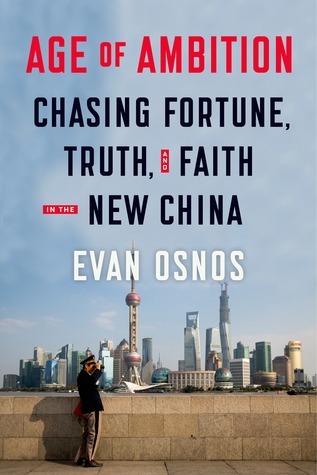More on this book
Community
Kindle Notes & Highlights
by
Evan Osnos
Read between
January 21 - May 17, 2019
But the similarities run thin; when Japan’s bubble burst, it was a mature, developed economy; but China, even overheated, remains a poor country in which the average person earns as much as a Japanese citizen in 1970.
P.E. and 4 other people liked this
When I stood in the light of a new Chinese skyline, I sometimes thought of Gatsby’s New York—“always the city seen for the first time, in its first wild promise of all the mystery and the beauty in the world.”
P.E. and 2 other people liked this
Michael stared at his feet and said, “I have no choice. This is life. I should always keep smiling. But actually I feel I’m under a lot of pressure. Sometimes I want to cry. But I’m a man.”
His collections encompassed, more or less, the span of human thought: Plato leaned against Lao-tzu, Wittgenstein, Bacon, Fustel de Coulanges, Heidegger, the Koran.
Each of them was in his twenties, the first in his family to go to college, and had been drawn to the study of Western thought. I asked them why.
Sitting in the cool quiet of a California night, sipping his coffee, Liu said that he was not willing to risk all that his generation enjoyed at home in order to hasten the liberties he had come to know in America. “Do you live on democracy?” he asked me. “You eat bread, you drink coffee. All these are not brought by democracy. Indian guys have democracy, and some African countries have democracy, but they can’t feed their own people. “Chinese people have begun to think, ‘One part is the good life, another part is democracy,’” Liu went on. “If democracy can really give you the good life,
...more
Nia and 3 other people liked this


